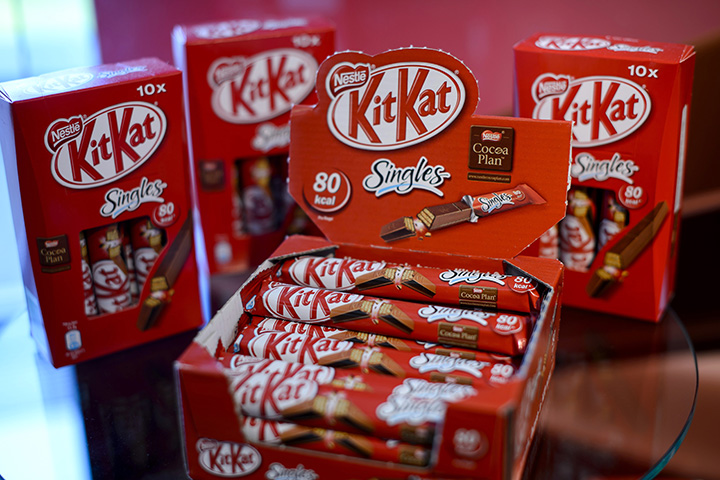Nestle, the world’s largest packaged food group, said it had devised a new technology that has the potential to reduce sugar in some of its confectionery products by up to 40 percent without affecting the taste.

The maker of KitKat and Aero bars said its researchers have found a way using only natural ingredients to change the structure of sugar particles. By hollowing out the crystals, Nestle said each particle dissolves more quickly on the tongue, so less sugar can be used in chocolate.
READ MORE: How much sugar should you be eating? How to follow WHO guidelines
“Our scientists have discovered a completely new way to use a traditional, natural ingredient,” the company’s chief technology officer, Stefan Catsicas, said in a statement late on Wednesday.
The announcement comes as a global obesity epidemic ramps up pressure on processed food makers to make their products healthier. Nestle and its peers have all been working to reduce sugar, fat and salt, as consumers increasingly opt for fresher, healthier options.
Nestle said it was patenting its findings and would begin to use the faster-dissolving sugar across a range of its confectionery products from 2018.
Nestle is not the first company to experiment with designer molecules.
READ MORE: No M&M’s in McFlurries and Blizzards? Mars may be removing its candies from fast food desserts
PepsiCo in 2010 piloted a designer salt molecule that it said would allow it to use less sodium without affecting the taste of its snacks, which include Walkers crisps and Cheetos.
The World Health Organization updated its sugar recommendations in 2014: sugar intake should be just five per cent of your total calories, half of what the global health agency had recommended years ago.
For an average woman who eats about 2,000 calories a day, that’s roughly 25 grams of sugar – less than half of a can of pop, about two portions of yogurt or an entire Caramilk bar.
*with files from Carmen Chai



Comments